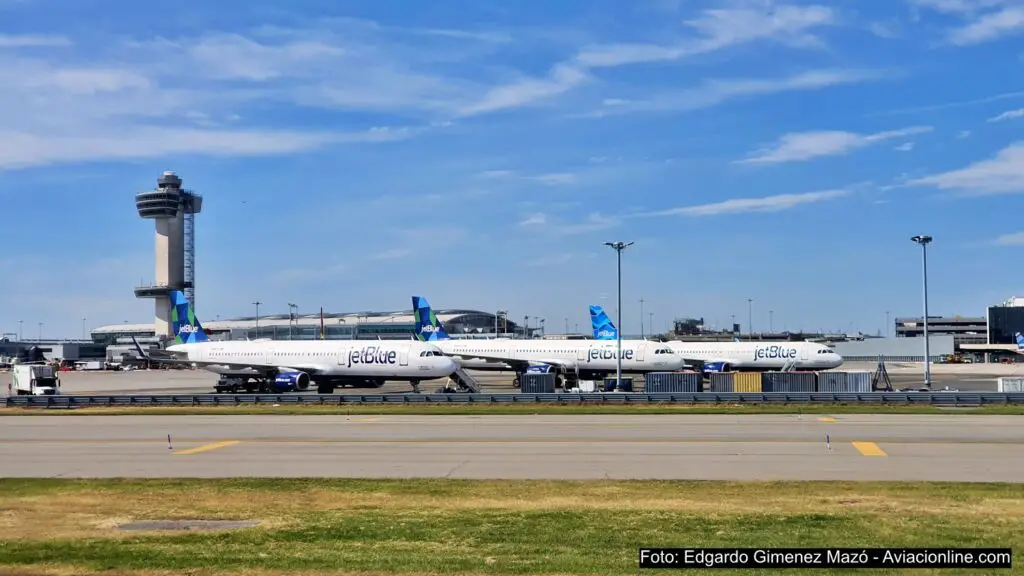US airline JetBlue announced a series of measures and investments aimed at strengthening its service during the upcoming summer season, which is expected to reach record numbers.
The airline’s plan includes reducing the flight schedule during the summer period, focusing on hiring and training new employees, efforts to reduce waiting times and the number of incoming customer calls, proactive aircraft maintenance work, and preparing facilities and infrastructure.
«We want customers who love the JetBlue experience to have confidence we will deliver it to them this summer», said Joanna Geraghty, JetBlue’s President and COO. «The investments we’re making will help reduce delays and cancellations during the busiest travel period», she added.
The airline’s plan will bring greater flexibility to its schedules and facilitate crew availability in the face of unforeseen situations, such as those reported in recent months from COVID-19 infections and weather events. JetBlue says its facilities and technologies «are equipped to cope with increased demand».
This is especially important at its home base, New York’s John F. Kennedy International Airport (JFK). There, JetBlue is growing by almost 50%, thanks to the so-called «Northeast Alliance», its cooperative agreement with American Airlines to boost its offerings from Boston and the Big Apple.
JetBlue is forecasting a record summer: it will operate about 190 daily flights from its home base.
Reduced schedule
Despite the high demand expected by all US carriers, JetBlue is taking steps to reduce its flight schedule to increase reliability. The new schedule will add more time to cushion against operational contingencies and reduce pressure on human resources, both crew and ground staff.
The airline originally planned to increase capacity this year by 11% to 15% over 2019. Under the new plan, the increase will be no more than 5%. The most significant change will be seen in the summer schedule, which will be reduced by more than 10% from the original plan. Between 10% to 15% fewer aircraft will be used compared to 2019.
According to Geraghty, taking a more conservative growth approach will allow them to «bring resiliency to the operation».
Despite the reduction, JetBlue will still grow significantly at New York’s three main airports (John F. Kennedy, LaGuardia and Newark): it will operate around 300 flights per day, about 100 more than in 2019.
Recruitment and training of staff to support scheduling
The recent increase in operating volumes put pressure on many airlines’ staffing resources. JetBlue was no exception. However, it expects to hire 5,000 new crewmembers based in New York and to boost its recently expanded training center in Orlando, Florida. In addition, the company increased the number of pilots assigned to conduct training and certification processes.
Addressing customer call volume and hold times
Recent operational outages led to a record number of calls, with the associated increase in hold time. Since last autumn, JetBlue has hired more than 1,100 new employees in the sector. The company expects to add hire employees and have the largest customer service team in its history by next summer.
It is also working on the self-service capabilities of its virtual channels and other communication channels.
Finally, JetBlue is also working to pre-emptively cancel flights on days when bad weather is forecast or if it anticipates delays due to air traffic control management problems from congestion or staffing shortages. The aim is to suspend operations well in advance, whenever the situation allows doing so, to give passengers more time to adjust their plans and reschedule their itineraries.
Reducing disruption due to maintenance developments
The airline will book aircraft strategically. The reduced schedule will add time to facilitate the advancement of planned maintenance programs. In addition, the company purchased parts and tooling in advance to mitigate potential delays.
See also: JetBlue inaugurates flights to Milwaukee and Kansas City from New York and Boston














